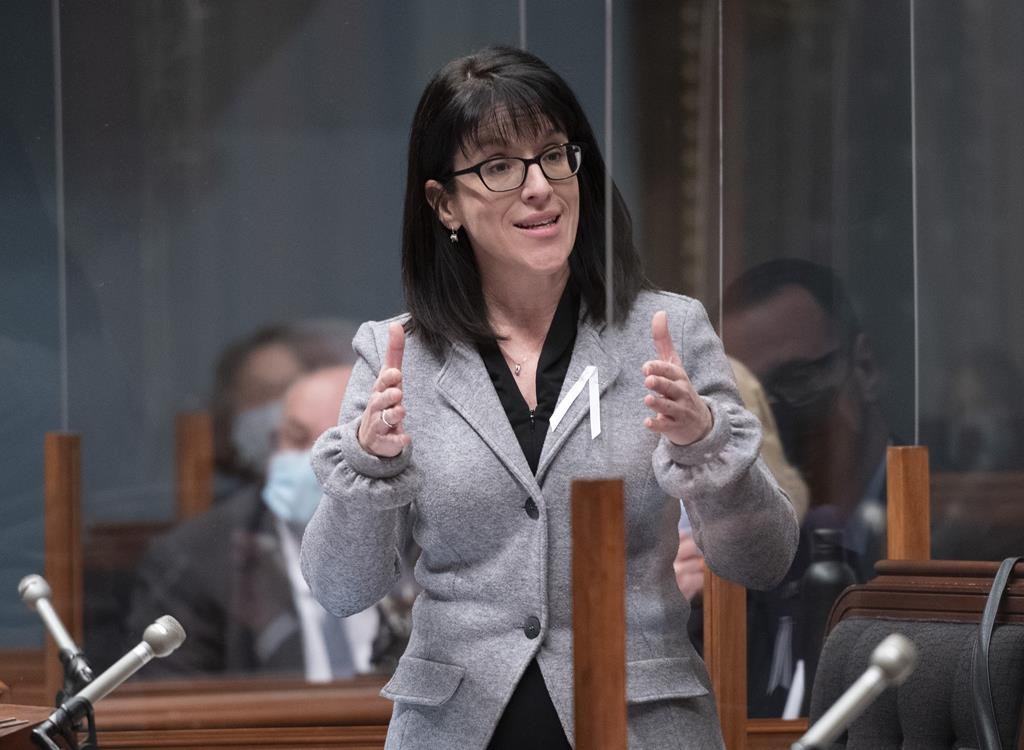FTQ union refuses to sign collective agreement with Quebec alleging wording changes

Posted May 24, 2024 5:21 pm.
Last Updated May 24, 2024 5:26 pm.
The Fédération des travailleurs et travailleuses du Québec (FTQ) refuses to sign the collective agreement offered by the Quebec government, arguing that the wording has no correlation to what was previously agreed on at the negotiation table.
The Canadian Union of Public Employees (CUPE) and the Syndicat québécois des employes de service (SQEES) claim the agreement in principle, although ratified by its members, is “in danger.”
The FTQ is part of the common front, alongside the Confédération des syndicats nationaux (CSN), the Centrale des syndicats du Québec (CSQ) and the Alliance du personnel professionnel et technique de la santé et des services sociaux (APTS) represent 420,000 workers in health and education.
Quebec, however, affirms that it will try to resolve the disagreement with the FTQ.
“We will resolve the situation raised by the FTQ at the negotiating table,” said President of the Quebec Treasury Board Sonia LeBel.
After the agreements were concluded and raitfed, there were messages exchanged between the government and the union organizations — as is normally the case before the official signing of the agreements to ensure that they correspond well to what was agreed at the negotiating table.
However, according to the CUPE and SQEES, this is when problems arose.
“We have a lot of problems in the texts received at the government level. There were several meetings held with the spokespersons to look at the texts and ask questions. Getting feedback was very difficult,” said CUPE President of the Provincial Council of Social Affairs Fanny Demontigny. “But, in addition to that, in the texts concluded with the agreement in principle, there were modifications on the employer’s side.”
The unions discovered several distortions with what had been agreed and according to them, there were changes affecting the double rate overtime payment, the retroactivity deadline payment, and the start date of the payment for new bonuses.
For example, the double rate payment had the terms changed in the text submitted by Quebec.
“We have several job titles which would no longer be entitled to this double rate. And it is unacceptable,” said Demontigny.
Demontigny noted that the FTQ would not sign the agreement if the texts remain as is.
“There is no question of redoing the negotiations. We presented our members with an agreement in principle, and it was democratically supported. We have validated more than once with the management side and today reveals a disagreement. We have discussions that bear witness to this. As a trade unionist, I have only one word, we believed that our counterparts, with the experience they have, had the same ethics,” said SQEES president Sylvie Nelson.
CUPE and SQEES plan to file a complaint for bad faith negotiation against the Quebec government if political pressure is not enough.
The Treasury responds
Minister LeBel’s office responded to the controversy.
“Let us emphasize that we have already agreed on the texts with the majority union in the health network, theFédération de la santé et des services sociaux (FSSS-CSN),” said LeBel’s office. “Moreover, we are in the process of reaching other agreements on the texts very soon. We will resolve the situation raised by the FTQ at the negotiating table.”
CSN and CSQ members are “on the verge of a conclusion.”
“The work is going well” and “we expect to sign soon,” indicated the CSQ, although its health federation, which represents nurses, has still not settled.
The FSSS–CSN finished reading and verifying the texts on Thursday evening before signing the agreements. They represent thousands of healthcare workers, including beneficiary attendants.
“We are generally very close to an agreement on the texts of the other negotiating tables,” indicated the CSN and plan to complete it “in the coming days.”
The signing of these collective agreements is an important step for all the workers involved since they are awaiting to be paid from their retroactivity payments.
–This report by La Presse Canadienne was translated by CityNews








